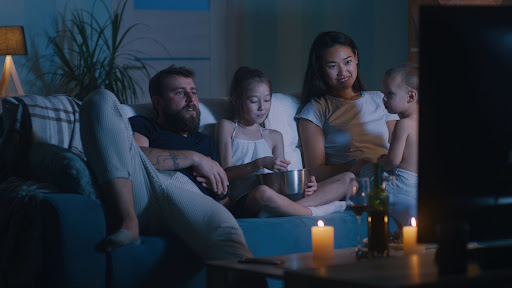Brain injuries have both direct and indirect victims: the person harmed, as well as their family and loved ones. It’s not uncommon for even a mild brain injury to result in personality changes and changes in the victim’s cognitive and physical abilities.
Many families don’t anticipate the enormous impact of a brain injury on relationships and family dynamics. It’s said that the changes and healing after a brain injury deteriorate a troubled relationship and strengthens a strong one.
Expect roles and responsibilities to change
Expect your established familial roles to change. These changes may be temporary if the injury is mild to moderate, with a good prognosis. Victims of a serious brain injury may be unable to live independently or care for themselves.
Resilience and understanding can go a long way toward providing a stable home environment for the brain injury victim to heal. Showing empathy to your loved one as they work through rehabilitation or therapy can reassure them that they are still loved and valued.
Everyone in the family is under psychological and emotional strain
This sudden change stresses a family dynamic; the shift in everyone’s role and dealing with a loved one’s health or personality change means everyone in the home is on edge. It’s common for families to feel resentment for the change in their loved one and guilt for resenting them.
Children may have to take on more responsibility or be more independent, which can be confusing for them. Or, a marriage partnership of equals changes into more of a parent-child role or caregiver and patient.
Sometimes, the brain injury victim’s personality changes may be such a shift that the healthy spouse questions if they want to continue in a relationship with the “new” person.
Communication breakdown challenges
Depending on which part of the brain is injured and how extensive the damage is, a brain injury victim may need occupational and speech therapies to regain their ability to speak, write, and otherwise communicate.
Frustration with slow progress in rehabilitation, or a permanently damaged ability to speak or communicate may cause the brain injury victim to lash out – and the family members close by are often the target.
Severe brain injuries can render the victim permanently unable to communicate or can trigger the onset of dementia. Cognitive decline carries its own communication problems, and unfortunately, it’s an irreversible condition.
Learning how to communicate with your loved one is a challenge. Even if they’re fully able to speak and write, a personality change can affect the way they communicate, like being more sarcastic or abrupt.
Practical and financial considerations about your loved one’s care
In the best-case scenario, your loved one is able to make a full, or mostly full, recovery from their brain injury and is eligible for short-term disability payments to help your family pay your bills as they recover.
Moderate to severe brain injuries, as we noted, can leave victims unable to live independently. In these cases, families have several choices for their loved one’s care:
- One family member takes on a caregiver role
- The family hires a home health nurse or personal care attendant
- The brain injury patient attends adult daycare during the day and is cared for by family at night
- The brain injury patient needs specialized care the family is unable to give and is placed in a long-term care community
These are tough choices for many families, and each one carries a financial drawback. If the victim was the sole or primary provider, then the family’s budget is considerably less than before the accident.
The cost of care for people with brain injuries is significant. The 2021 California monthly averages were:
- Home health care aide/personal care attendant: $6,101
- Adult day health care: $1,842
- Nursing home (semi-private room): $9,794
The stress of losing a significant amount of family income, coupled with adding costly monthly care, hits many families hard.
Maintain a strong support network
Stress, resentment, and guilt are common for families of brain injury victims, but many may find help and support through therapy, both family and individual. Many California communities have support groups for families of brain injury victims. Participating in these services can provide families with an understanding support network.
How an experienced attorney can help
A fair traumatic brain injury settlement can make a lot of the challenges your family faces easier. A skilled California traumatic brain injury lawyer, like those at Ernst Law Group, properly values your case and fights to get a settlement to cover lifelong medical treatment, housing in a memory care facility, and ongoing support for a family whose income has been significantly reduced.
We can help with the impact of a brain injury on relationships and family dynamics. Contact our firm today at (805) 541-0300 for a free case review.



